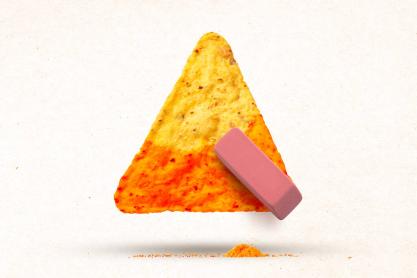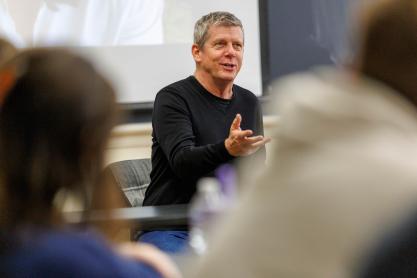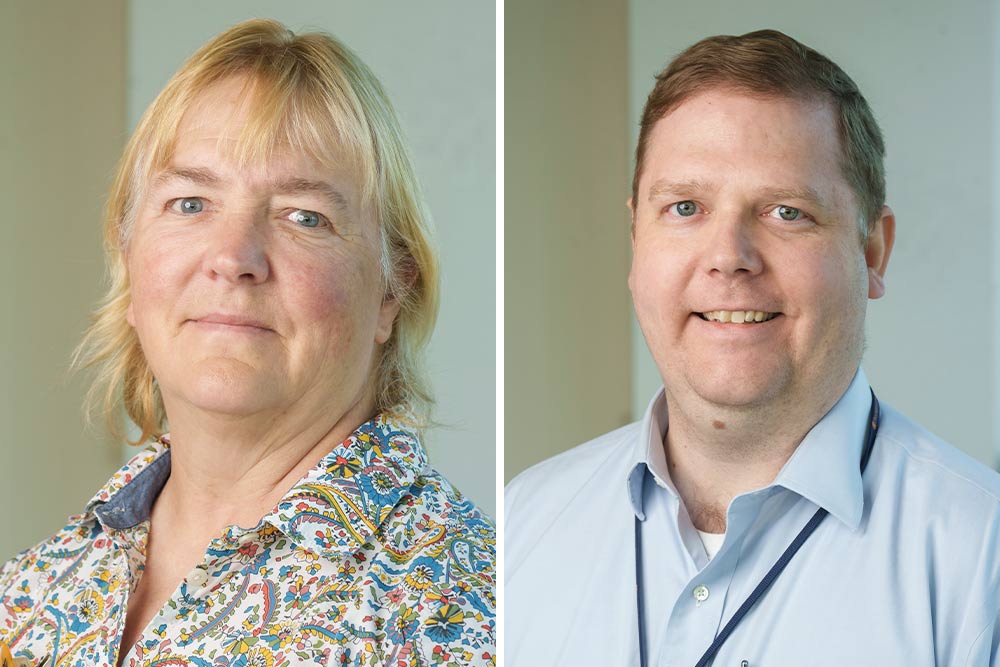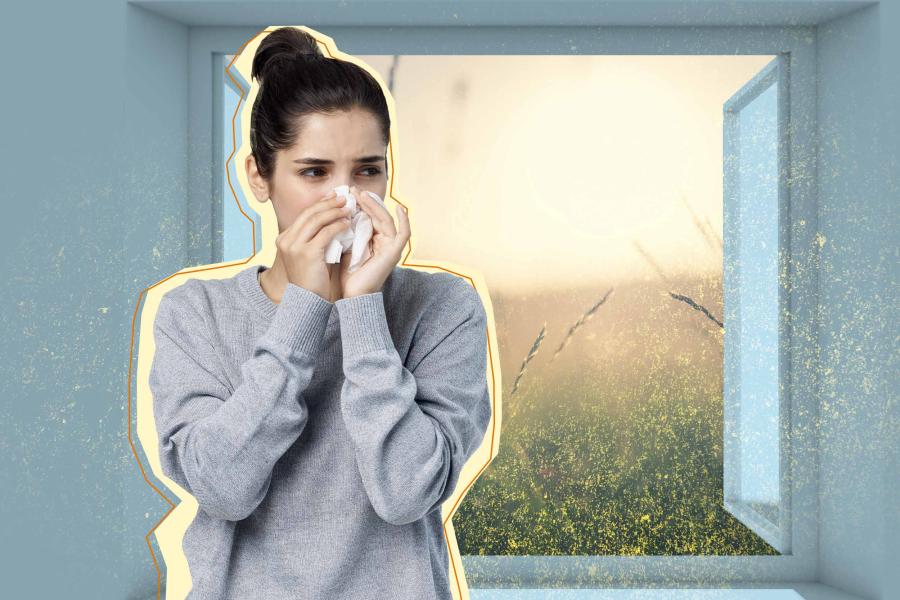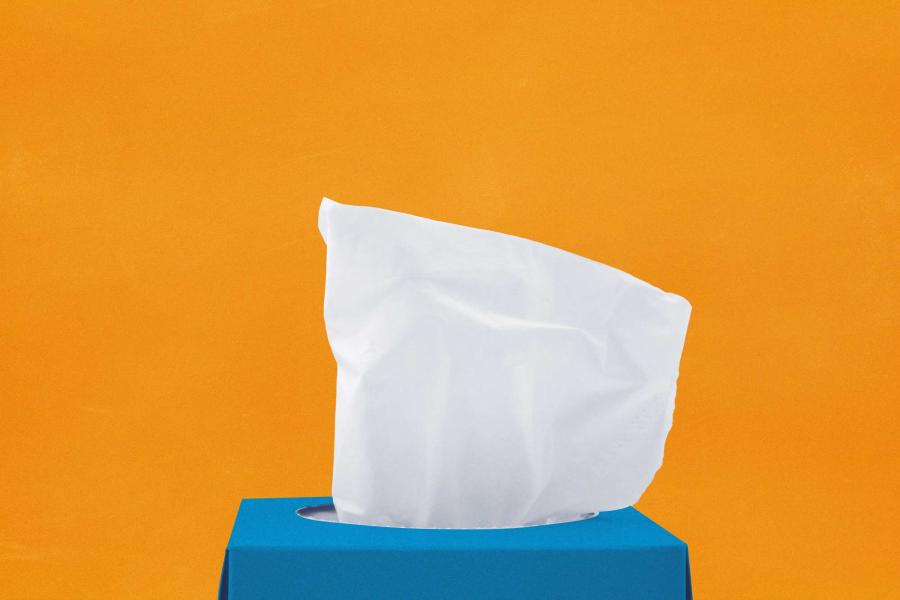Cole Copeland was 2 years old when he finally had the chance to try his brother’s favorite meal: a peanut butter and jelly sandwich.
Diagnosed with allergies to multiple foods – including peanuts, eggs, cashews and hazelnuts – Cole faced an anxious childhood filled with food restrictions. His mother, Jessica Copeland, chief of staff of UVA Health’s pediatric department, said neither she nor her husband had food allergies, so the diagnosis came as a surprise.
“We first worked through the lesser nut allergies and then when he was around 2, we got to the peanut trial,” she said. “The total process took about a year, and then he passed the final peanut challenge.”
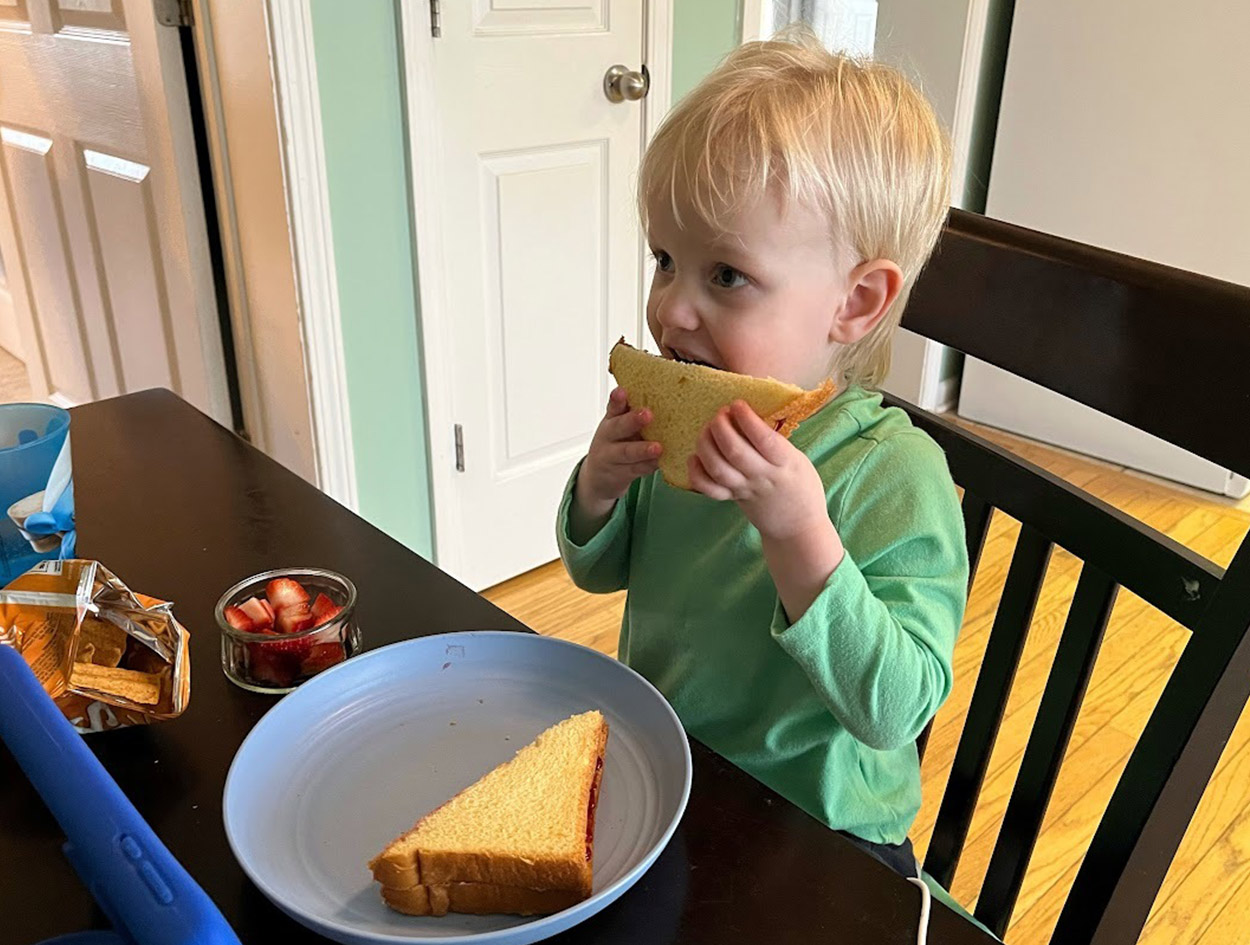
Cole Copeland eats his first peanut butter sandwich after undergoing peanut desensitization treatment at UVA Health Children’s. (Contributed photo)
That challenge was part of a UVA Health Children's study, known as Early Peanut Oral Immunotherapy, which gradually exposed peanut-allergic children under 3 to controlled doses of peanut protein. The goal: desensitize them enough to tolerate 500 milligrams of peanut daily – the equivalent of about two peanuts.
In the study of 30 children, 16 experienced no adverse effects, while 12 suffered only mild hives or rashes that were treatable with antihistamines. Of the group, 27 children completed the therapy and three did not finish the treatment, one due to an anaphylactic reaction.
“We don’t use certain words in allergy like ‘cure’ or ‘no longer allergic’ for the most part, but we are seeing this sustained unresponsiveness to peanuts, especially in the youngest kids,” said Karen Braden, a UVA Health pediatric nurse practitioner who is part of the team offering the treatment.
Dr. Jonathan Hemler, a pediatric food allergist at UVA Health Children’s, said the findings suggest there may be a critical early window, before age 3, when children are more receptive to desensitization.




